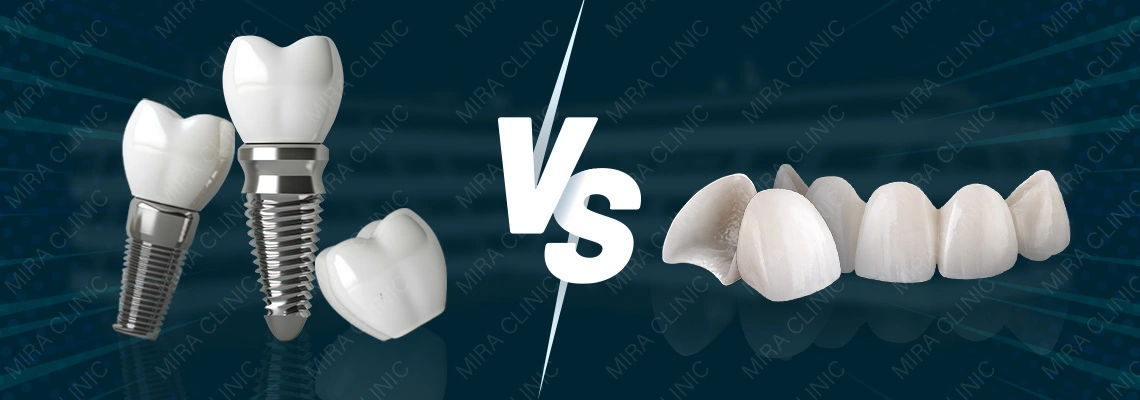Is a dental implant really worth it? A common question has still been raised among a lot of people around the world who suffer from dental issues and look for an ideal dental procedure.
Table of contents
What do you know about dental implants?
Everyone is exposed to losing teeth due to trauma, tooth decay, age, certain disease, or other factors. In the past, dentures or installing bridges were common methods for replacing broken or lost teeth. Today, dental implants have emerged as a powerful solution that depends on the latest technology in dentistry.
Dental implants are artificial tooth replacements made of titanium. They are solid foundations placed surgically in the jawbone, then covered by crowns made specially to fit your jaw and create a natural-looking smile.
Like any other dental procedure, dental implants have their pros and cons. Let’s have a deep look at those points in detail.
The pros of dental implant
Here are the main benefits which are associated with a dental implant:
Your teeth will appear perfectly natural when your dental implant operation is completed. You will find no difference between your new dental implant and your previous teeth, and you will be able to chew and grind comfortably as you used to do with your teeth when they were healthy. Furthermore, you will enjoy bright white teeth that create a wonderful smile like Hollywood stars.
Durability is one of the powerful advantages of dental implants. It is a long-lasting solution that can replace traditional dental procedures, including dentures and dental bridges that usually do not last for the long term. Dental implants are fused to the jaw bone and form solid foundations for artificial teeth or crowns.
Losing a tooth without replacing it negatively affects the bone structure which supports this tooth. If you have many lost teeth, your jawbone will be disintegrated, distorting your jaw bone structure.
Dental implants can preserve the bone and prevent any bone disintegration that hampers the function of the jaw.
Dental implants can maintain gum health by filling a missing tooth gap which is considered an appropriate environment for bacteria. Moreover, if you suffer from a lost tooth, dental implants can protect your gum from any damage during chewing or grinding your food.
Teeth play a crucial role in chewing and speaking. If you have lost teeth, the functions of teeth will be affected. Your speech will not be clear enough for listeners, and you will feel uncomfortable when you chew or grind your food. Dental implants can be an ideal option for replacing your lost teeth to promote the function of your teeth.
After your dental implant procedure, your teeth need no special care, such as certain toothpaste or toothbrush. Unlike traditional dental procedures, such as dentures that you need to remove before cleaning, you will find no difficulties while brushing or flossing your new teeth since they look and act like your natural teeth.

The cons of dental implant
Even if dental implant procedure can be a powerful alternative to other dental procedures, it is still associated with some challenges. Let us have a look at them:
When it comes to costs, dental implants are considered expensive compared to other traditional dental procedures, including dental bridges and dentures. However, you can perform dental implants in one of the popular countries in medical tourism where prices are affordable, such as Turkey.
If you would like to install a dental implant, you have to know that this procedure might take longer than other dental procedures because your dental implants require time to fuse with the jaw bone well.
Your gum around the dental implants is exposed to get infected by bacteria, which may cause inflammation or bone loss later if it is developed.
One of the setbacks of dental implants is the non-possibility of undergoing them for everyone. People who suffer from diabetes or osteoporosis can not perform dental implant procedures. Furthermore, since jaw bone plays a crucial role in holding the dental implant firmly, people who do not enjoy enough bone structure may not be able to perform a dental implant.
However, dental implants are still the best option for those who would like to replace their lost teeth with others that look and act just like natural teeth and last for a long term.
















